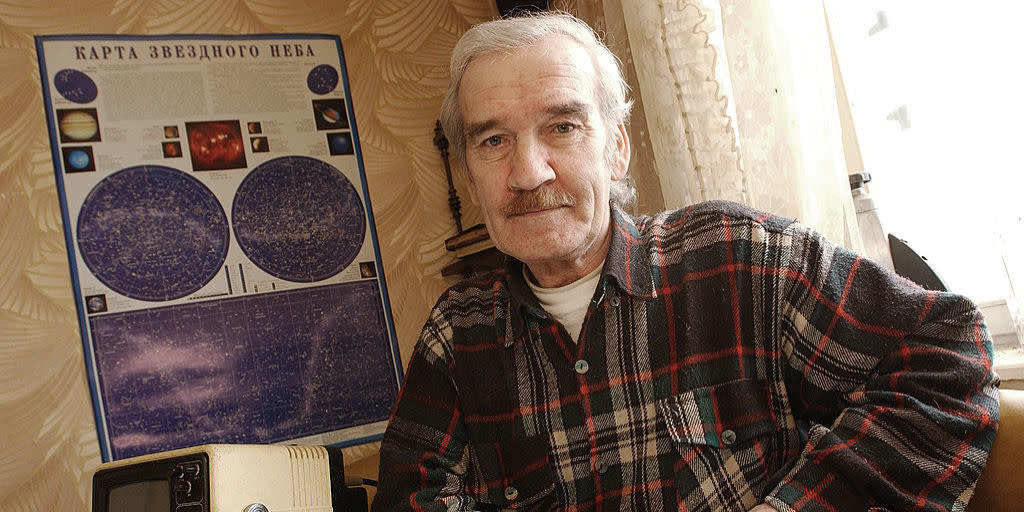Soviet Officer Who Prevented a Nuclear War Dies at 77

Stanislav Petrov, the Soviet officer whose calm under pressure saved the world from an atomic war, has been confirmed dead at 77. He actually died earlier this year, on May 19.
On September 26, 1983, Petrov was 44 and working at a missile detection center south of Moscow known as Serpukhov-15. His role, typical of the Cold War era, involved routinely checking signs that the other side was plotting to annihilate the Soviet Union. He oversaw a staff that monitored incoming signals from satellites checking for military aggression from United States, three steps removed from the military advisors who would alert Soviet General Secretary Yuri Andropov of any incoming attacks.
Suddenly, the warning systems roared and lit up, blaring the word LAUNCH. An American ICBM known as a Minuteman had been launched from an American base. "A minute later the siren went off again. The second missile was launched. Then the third, and the fourth, and the fifth. Computers changed their alerts from 'launch' to 'missile strike'," he told the BBC.
It was already a tense time in the Cold War. The United States was two years into psychological operations against the Russians, consistently appearing on Soviet radar to test their systems' vulnerabilities. The Soviets had, just weeks earlier, shot down a commercial flight that had entered its airspace, killing 279 people including a congressman. While seen as a tragic misunderstanding due to the plane's following accidental following of a U.S spy route, President Reagan had called it a "massacre."
Tensions with the Americans, who earlier that year declared the Soviet Union a "evil empire," were at their highest in decades. "US-Soviet relations had come full circle by 1983," says a report on the incident from the CIA. "From confrontation in the early postwar decades, to detente in the late 1960s and 1970s, and back to confrontation."
Back to that fateful day. "For 15 seconds, we were in a state of shock," Petrov later recalled to the The Washington Post. "We needed to understand, 'What's next?'
Petrov, an engineer overseeing a staff of soliders, looked at the data being presented to him and found it curious. Five ICBMs, as deadly as they would be, didn't fit into a narrative in which the Soviet Union would be completely destroyed. "When people start a war, they don't start it with only five missiles," he told the Post. There was no attack, he decided-the computers were wrong. "I had a funny feeling in my gut," Petrov said. "I didn't want to make a mistake. I made a decision, and that was it." He told his superiors there was a systems malfunction.
There was no American attack, and in identifying the false-positive, Petrov potentially saved hundreds of millions of lives. "Twenty-three minutes later I realized that nothing had happened. If there had been a real strike, then I would already know about it. It was such a relief," he told the BBC a smile.
When interviewed by the Post in 1990, Petrov was described as "never rewarded for his decision and today is a long-forgotten pensioner living in a town outside Moscow." He was reassigned to a less sensitive post and, although he forcefully denied that he was forced out of the military, retired early. He also suffered a nervous breakdown.
The later decades were somewhat kinder to Petrov. He appeared in numerous TV programs and interviews telling his story. A documentary featuring Kevin Costner was released in 2014 called The Man Who Saved The World. In 2013 he was given the anti-war Dresden Prize, earning him $33,000. "I did nothing heroic, I don't feel like a hero. I just did my job and I like the way I did it," Petrov told the crowd.
Source: Paleofuture
You Might Also Like

